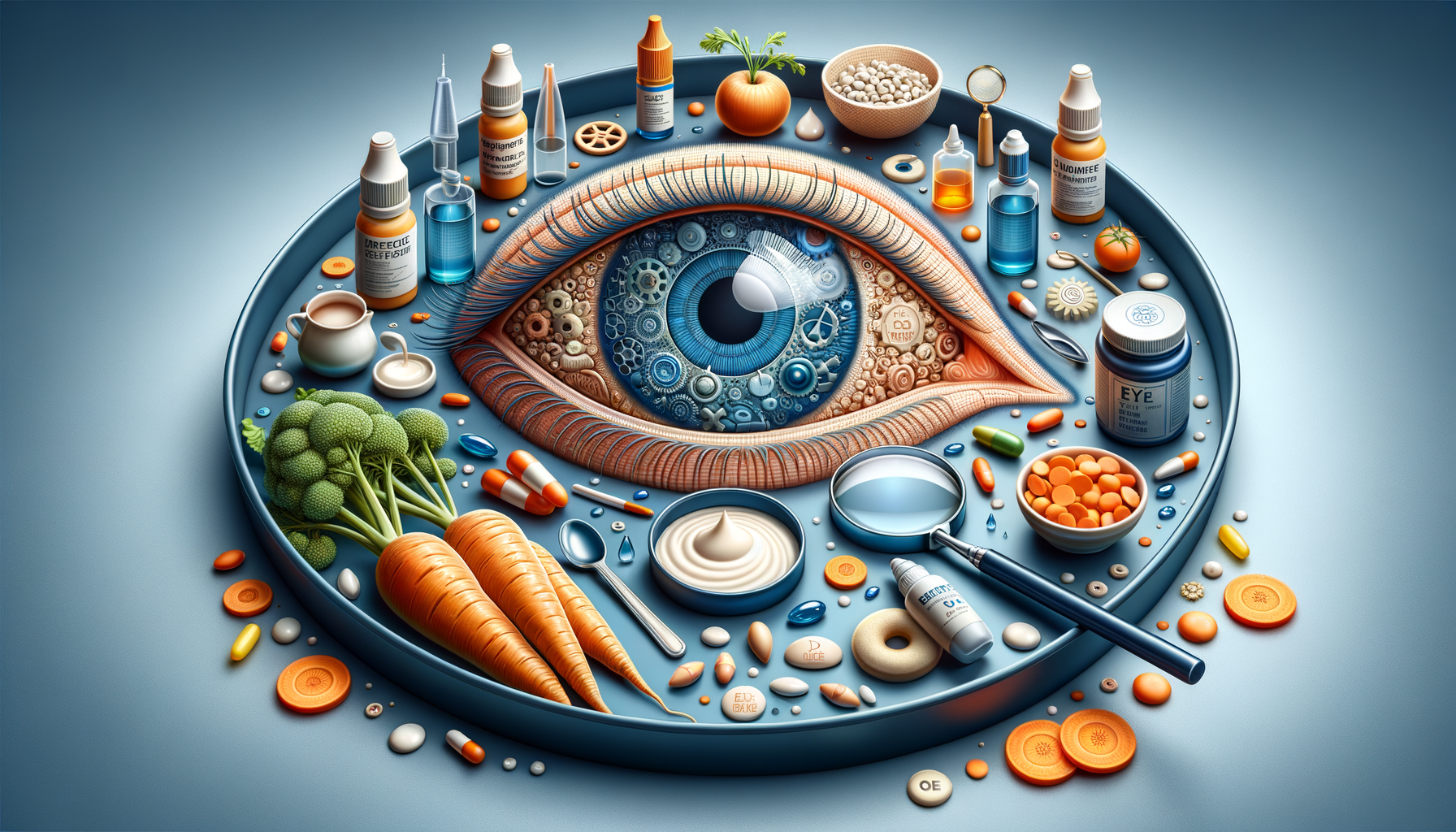Introduction to Dry Eyes
Dry eyes are a common condition that many people experience at some point in their lives. This condition occurs when your tears aren’t able to provide adequate lubrication for your eyes. It can be both uncomfortable and frustrating, leading to symptoms such as stinging, burning, and redness. Understanding the causes and management of dry eyes is crucial for improving quality of life and maintaining eye health.
Dry eyes can affect anyone, but they are more prevalent in older adults, particularly women. Hormonal changes, environmental factors, and prolonged screen time are just a few contributors. With the increasing use of digital devices, the prevalence of dry eyes is on the rise, making it a relevant topic for discussion. In this article, we will explore the causes, treatments, and the role of nutrition in managing dry eyes.
Causes of Dry Eyes
Understanding the underlying causes of dry eyes is the first step towards effective management. The primary cause is a disruption in the tear production process, which can occur due to various factors. These include:
- Age: As we age, tear production tends to decrease, making dry eyes more common in older adults.
- Environmental Conditions: Exposure to wind, smoke, or dry climates can lead to increased evaporation of tears.
- Screen Time: Prolonged use of computers and smartphones can reduce blink rate, leading to dry eyes.
- Medications: Certain medications like antihistamines and blood pressure drugs can reduce tear production.
- Medical Conditions: Conditions such as diabetes, rheumatoid arthritis, and thyroid disorders can contribute to dry eyes.
Identifying the specific cause in an individual can guide the choice of treatment and preventive measures.
Treatment Options for Dry Eyes
Treating dry eyes involves a combination of lifestyle changes, over-the-counter remedies, and medical treatments. Here are some effective strategies:
- Artificial Tears: These are available over the counter and can provide immediate relief by supplementing natural tears.
- Lifestyle Adjustments: Reducing screen time, using a humidifier, and wearing wraparound sunglasses can help minimize symptoms.
- Prescription Medications: In more severe cases, doctors may prescribe medications that increase tear production or reduce inflammation.
- Procedures: Punctal plugs or surgery may be recommended to prevent tear drainage in severe cases.
Consulting with an eye care professional can help determine the most appropriate treatment based on the severity and underlying cause of dry eyes.
Nutritional Support for Dry Eyes
Nutrition plays a significant role in maintaining eye health and can be beneficial in managing dry eyes. Certain nutrients have been shown to support tear production and reduce inflammation, including:
- Omega-3 Fatty Acids: Found in fish oil and flaxseed, omega-3s can help reduce inflammation and improve tear quality.
- Vitamin A: Essential for maintaining a healthy ocular surface, vitamin A can be found in foods like carrots and sweet potatoes.
- Vitamin C and E: These antioxidants help protect the eyes from damage and are found in a variety of fruits and vegetables.
Incorporating these nutrients into your diet can support eye health and potentially alleviate symptoms of dry eyes. However, it’s important to consult with a healthcare provider before making significant dietary changes or starting supplements.
Conclusion: Managing Dry Eyes for Better Quality of Life
Dry eyes can significantly impact daily life, but with a better understanding of its causes and treatment options, individuals can find relief and improve their quality of life. By addressing environmental factors, making lifestyle changes, and considering nutritional support, the symptoms of dry eyes can be effectively managed. Regular consultations with eye care professionals are essential for personalized treatment plans and maintaining optimal eye health.
Whether you’re experiencing mild discomfort or severe symptoms, taking proactive steps can help you manage dry eyes and enjoy clearer, more comfortable vision.








